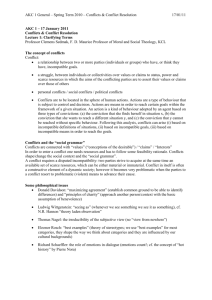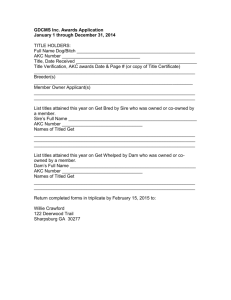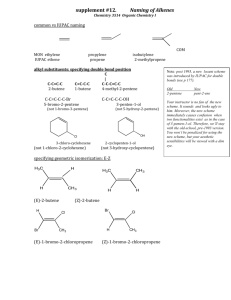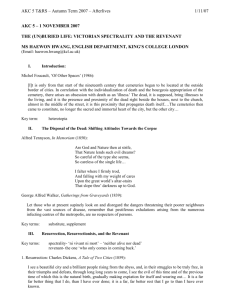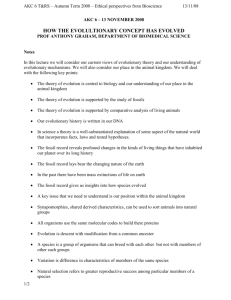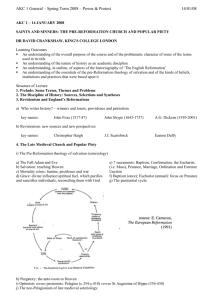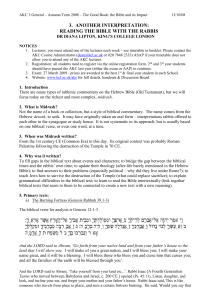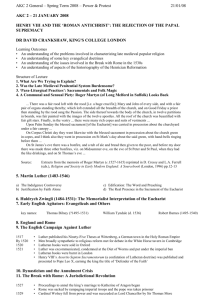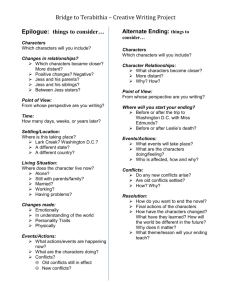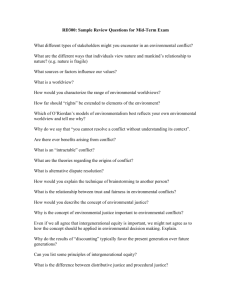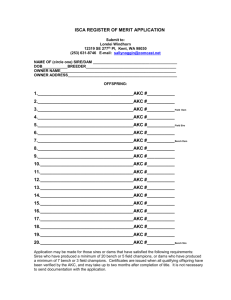Lecture 2: Conflict: Current Research
advertisement
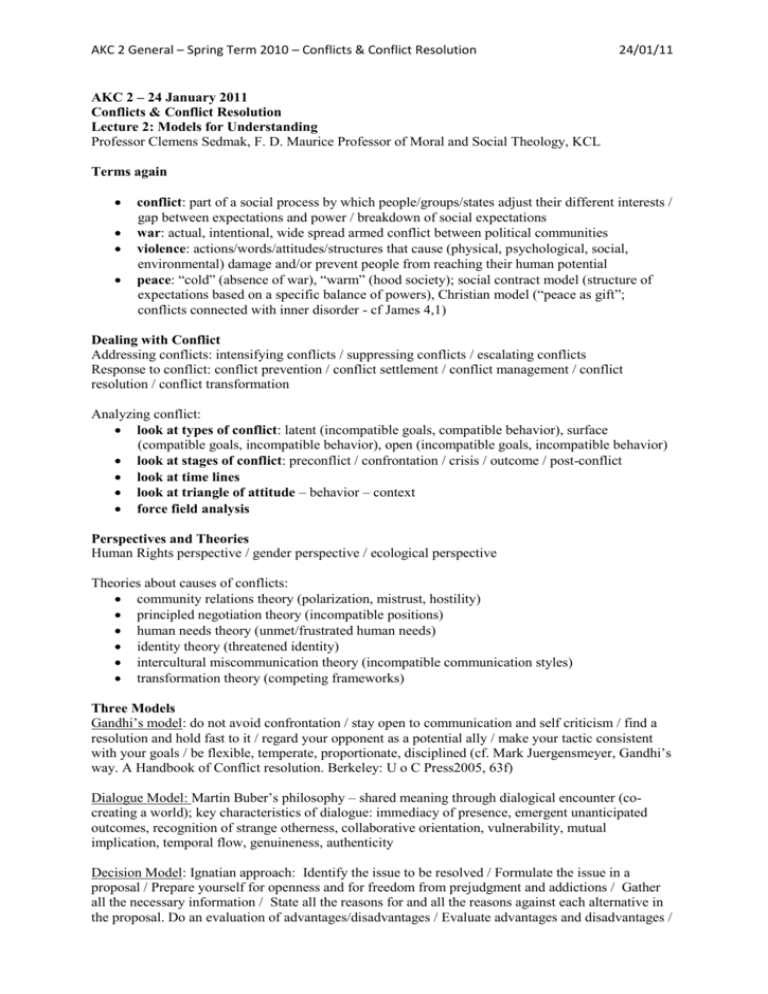
AKC 2 General – Spring Term 2010 – Conflicts & Conflict Resolution 24/01/11 AKC 2 – 24 January 2011 Conflicts & Conflict Resolution Lecture 2: Models for Understanding Professor Clemens Sedmak, F. D. Maurice Professor of Moral and Social Theology, KCL Terms again conflict: part of a social process by which people/groups/states adjust their different interests / gap between expectations and power / breakdown of social expectations war: actual, intentional, wide spread armed conflict between political communities violence: actions/words/attitudes/structures that cause (physical, psychological, social, environmental) damage and/or prevent people from reaching their human potential peace: “cold” (absence of war), “warm” (hood society); social contract model (structure of expectations based on a specific balance of powers), Christian model (“peace as gift”; conflicts connected with inner disorder - cf James 4,1) Dealing with Conflict Addressing conflicts: intensifying conflicts / suppressing conflicts / escalating conflicts Response to conflict: conflict prevention / conflict settlement / conflict management / conflict resolution / conflict transformation Analyzing conflict: look at types of conflict: latent (incompatible goals, compatible behavior), surface (compatible goals, incompatible behavior), open (incompatible goals, incompatible behavior) look at stages of conflict: preconflict / confrontation / crisis / outcome / post-conflict look at time lines look at triangle of attitude – behavior – context force field analysis Perspectives and Theories Human Rights perspective / gender perspective / ecological perspective Theories about causes of conflicts: community relations theory (polarization, mistrust, hostility) principled negotiation theory (incompatible positions) human needs theory (unmet/frustrated human needs) identity theory (threatened identity) intercultural miscommunication theory (incompatible communication styles) transformation theory (competing frameworks) Three Models Gandhi’s model: do not avoid confrontation / stay open to communication and self criticism / find a resolution and hold fast to it / regard your opponent as a potential ally / make your tactic consistent with your goals / be flexible, temperate, proportionate, disciplined (cf. Mark Juergensmeyer, Gandhi’s way. A Handbook of Conflict resolution. Berkeley: U o C Press2005, 63f) Dialogue Model: Martin Buber’s philosophy – shared meaning through dialogical encounter (cocreating a world); key characteristics of dialogue: immediacy of presence, emergent unanticipated outcomes, recognition of strange otherness, collaborative orientation, vulnerability, mutual implication, temporal flow, genuineness, authenticity Decision Model: Ignatian approach: Identify the issue to be resolved / Formulate the issue in a proposal / Prepare yourself for openness and for freedom from prejudgment and addictions / Gather all the necessary information / State all the reasons for and all the reasons against each alternative in the proposal. Do an evaluation of advantages/disadvantages / Evaluate advantages and disadvantages / AKC 2 General – Spring Term 2010 – Conflicts & Conflict Resolution 24/01/11 Observe the direction of your will while reflecting on the advantages and disadvantages / Trust in God and make your decision, even if you are not certain about it / Confirm the decision. Reconciliation Models * Russell Daye (Finding a Model of Reconciliation. Fijian Studies 1,1 [2003] 1-16) gives a four part method towards forgiving and being reconciled after conflict: a) the truth must be told in which the reasons for the conflict and the people involved are exposed; b) an apology must be offered which includes a claiming of responsibility for pain caused - “when the apology does come, it can have positive effects for all involved”; c) there must be an element of justice building in which perpetrators are punished and victims receive compensation; d) individual healing must occur in order for the community to be restored Brandom Hamber, Grainne Kelly (Reconciliation: a working definition. Democratic Dialogue 2004) a reconciliation process generally involves five interwoven and related strands. These are: 1. Developing a shared vision of an interdependent and fair society: The development of a vision of a shared future requiring the involvement of the whole society, at all levels. 2. Acknowledging and dealing with the past: Acknowledging the hurt, losses, truths and suffering of the past. 3. Building positive relationships: Relationship building or renewal following violent conflict addressing issues of trust, prejudice, intolerance in this process, resulting in accepting commonalities and differences, and embracing and engaging with those who are different to us. 4. Significant cultural and attitudinal change. 5. Substantial social, economic and political change: * Luc Huyse (The process of reconciliation. In: D. Bloomfield et al, eds., Reconciliation after violent conflict. IDEA 2003): stages in reconciliation process: (1) replacing fear by non violent co-existence; (2) building confidence and trust”; (3) towards empathy; (4) culture of democracy The AKC Examination will take place on Friday, 1st April between 14.30 and 16.30 AKC Exam Registration is live until 28th January 2011. Please login to your OneSpace Student Record to register mykcl.kcl.ac.uk . If you don’t wish to register for the exam, complete the Registration Task selecting “No“. You can still follow the lectures if you don’t take the exam. The AKC eLearning Pages are on your Blackboard with course code: NS-0ZDOAKC1-3 10~11 Associate of King’s College Full details about the AKC course, including the handouts: http://www.kcl.ac.uk/akc Please note the new AK C email address for queries akc@kcl.ac.uk or call internal ext 2333
